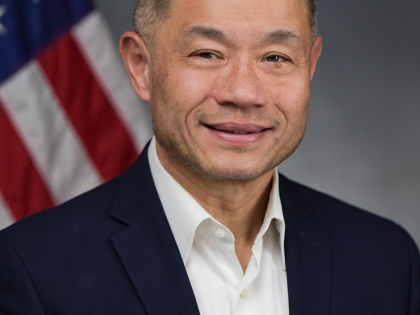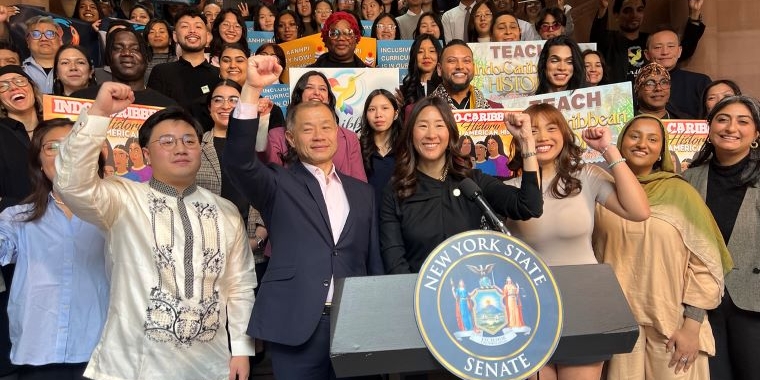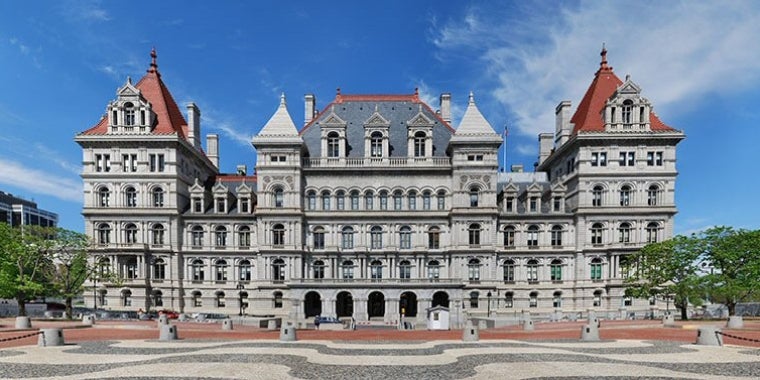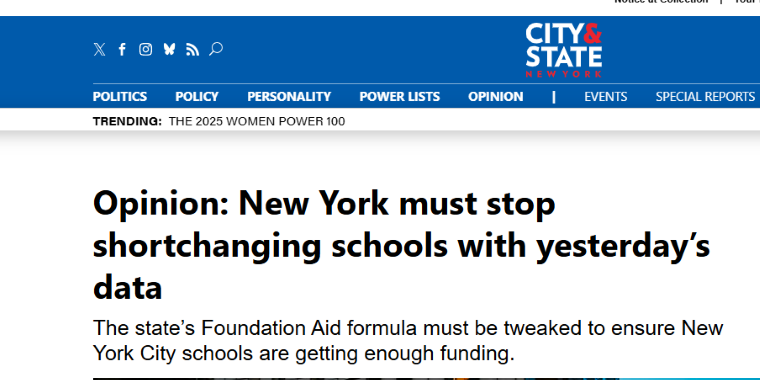
AANHPI Education Equity Act Passes State Legislature
June 16, 2025

REACH Advocacy Day on Feb. 11, 2025, when more than 70 advocates, including over 25 students and representatives from 20+ organizations, convened in the State Capitol to emphasize the need for comprehensive AANHPI history in New York classrooms.
FOR IMMEDIATE RELEASE: June 16, 2025
Contact: Lee: Jack Friedman |917.213.53.78 | friedmanj@nyassembly.gov
Liu: Soojin Choi |347-556-6335| press@johnliusenate.com
Albany, NY - Last week, the New York State Senate and State Assembly passed new legislation from Assembly Member Grace Lee and Senator John Liu to study how public schools across New York are teaching Asian American, Native Hawaiian, and Pacific Islander (AANHPI) history and to create an advisory committee to recommend how best to incorporate this instruction into schools. The bill will now head to the Governor for her signature.
Dubbed the AANHPI Education Equity Act, the legislation (A8463E/S7855E) directs the Education Commissioner to conduct a statewide survey on how and where AANHPI history is currently being taught in schools. The survey will help identify challenges, gaps, and opportunities for improvement. It also creates a first-of-its-kind AANHPI Advisory Committee, which will provide recommendations on how to incorporate AANHPI curriculum statewide.
The AANHPI Education Equity Act is separate from, but aligned with, (S3334/A4638), a bill that seeks to mandate a statewide AANHPI curriculum across New York and remains a priority for legislators and advocates. Together, these efforts represent a multi-step approach to ensuring AANHPI history and civic impact is fully reflected in classrooms in New York.
The measure is supported by a broad coalition of education and AANHPI advocates led by the REACH Coalition. Co-founded in 2022 by the Coalition for Asian American Children and Families (CACF), OCA-NY, and more than 50 community-based organizations, REACH was established to support a more inclusive and representative educational system for AANHPI students across New York State.
State Assembly Member Grace Lee stated, “This bill is the culmination of years of advocacy by the community and elected officials. The AANHPI Education Equity Act takes a critical step on the path towards a statewide AANHPI history curriculum. This is not just a policy step; it’s a statement that our stories matter and our community deserves to be recognized and seen in textbooks and classrooms. I’m appreciative of all the advocates and community members who have fought alongside Senator Liu and me to help reach this moment.”
State Senator John Liu stated, “New York’s diverse AANHPI communities have made innumerable contributions to the state and nation, yet this history is too often left out of our classrooms. This bill will help to correct that wrong by taking a hard look at what’s being taught in our classrooms, and what’s not.”
The REACH Coalition, co-founded by the Coalition for Asian American Children and Families (CACF) and OCA-NY, stated, “This win reflects years of tireless organizing, coalition-building, and the power of our communities. From advocating for a more inclusive curriculum to pushing for statewide data that holds our education system accountable, we’re proud to see our efforts translate into real legislative progress. This bill is a critical first step toward ensuring AANHPI histories and experiences are meaningfully taught in classrooms across New York. The survey data will help us better understand what is currently being taught, identify resource gaps, and determine what support educators need to effectively teach AANHPI curriculum.”
Anita Gundanna and Vanessa Leung, Co-Executive Directors at the Coalition for Asian American Children and Families (CACF), and co-founders of the REACH Coalition, stated “As co-founders of the REACH Coalition and longtime advocates of inclusive curriculum for New York State, CACF is proud to see this milestone achieved through years of persistent advocacy and coalition-building. The passage of this bill is a critical step forward to getting an AANHPI curriculum integrated into our classrooms —and the forthcoming survey data will be essential in identifying what’s missing and ensuring educators are equipped to teach an inclusive and accurate curriculum statewide. This legislation reflects our deep commitment to educational equity and ensuring that AANHPI students see their histories, cultures, and contributions reflected in the classroom.”
John J. Chin, Interim Dean, CUNY Asian American/Asian Research Institute (AAARI), stated, “The passage of the AANHPI Education Equity Act is a critical step forward in recognizing the histories and experiences of Asian American, Native Hawaiian, and Pacific Islander communities across New York State. Through our Localized History Project, AAARI has heard directly from AANHPI youth across the state who feel invisible in classrooms and excluded from the narratives that shape our understanding of this country. This new law not only affirms their voices—it opens the door to more just, inclusive, and truthful teaching. We commend the State Legislature for taking this meaningful action and look forward to supporting the survey effort with data, insight, and youth-led innovation.”
Kenny Nguyen, Advocacy Manager, Stop AAPI Hate, stated, “Stop AAPI Hate celebrates the passage of this important legislation. You can’t change what you can’t measure. To teach our history, we first must understand whether and how AANHPI topics are currently taught in schools, and the survey findings will identify challenges, gaps, and opportunities for improvement. With the ongoing efforts to erase our histories from classrooms and the dismantling of our education system, this victory pushes us closer to advancing AANHPI history in public schools–a necessary tool to combat AAPI hate.”
Richard In, Executive Director, Korean American Civic Empowerment for Community (KACE), stated, “This is a very important step forward for our AANHPI communities in New York. We thank the legislators who fought hard to call for a serious examination of what is and is not being taught in our schools. We are confident that the results of this survey will shed light upon what our communities have known and said for years about the incomplete narratives of our American histories in our public school curricula. We are hopeful that the results of the survey will be used to advocate for a more inclusive and meaningful curriculum in our public schools, and to equip our educators with the tools to provide our students a more well-rounded education.”
Clifford Robin Temprosa, Director of Public Policy at National Federation of Filipino American Associations (NaFFAA), stated, “At NaFFAA, we believe that what gets measured gets prioritized. The AANHPI Education Equity Act is not just about curriculum—it’s about confronting the systemic erasure of our communities through data, truth, and accountability. This legislation ensures that the stories of Asian American, Native Hawaiian, and Pacific Islander students are no longer invisible in our schools. By mandating a statewide survey and creating a representative advisory committee, New York is laying the groundwork for policy rooted in real lived experience—not assumptions. We applaud Assembly Member Grace Lee, Senator John Liu, and the REACH Coalition for this landmark step toward educational equity. Our histories deserve more than a footnote—they deserve to shape the future of public education.”
Mohamed Q. Amin, Executive Director of the Caribbean Equality Project, stated, “As a Steering Committee member of the REACH Coalition and a longstanding advocate for an inclusive curriculum in New York State, we are thrilled to witness this significant achievement, fostered through dedicated advocacy and a multi-ethnic approach to coalition-building. The AANHPI Education Equity Act is a monumental stride forward in integrating an AANHPI-focused curriculum into our educational system. New York State is home to the largest Indo-Caribbean foreign-born population in the United States. The legislation requires the implementation of a survey to document how educators incorporate AANHPI history in the classroom throughout the state, and its data will play a pivotal role in identifying gaps in teaching an inclusive and comprehensive Asian American history curriculum. This passage of this bill underscores our unwavering commitment to ensuring that AANHPI students learn about their histories, the legacies of their ancestors, and their cultural heritage through their K-12 academic years.”



